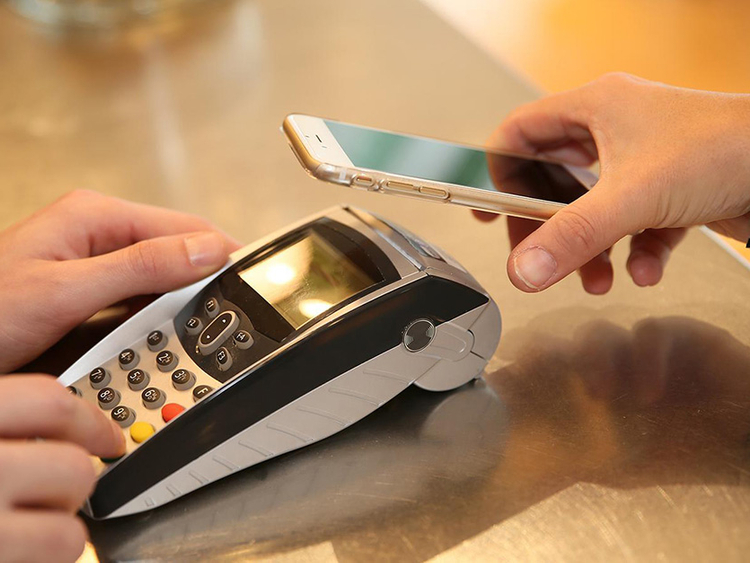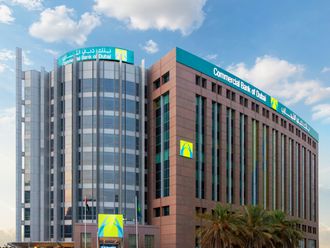Get ready for it. The use of mobile wallets as a means of payment will perhaps be the biggest disruption the financial sector in the UAE has ever seen.
But old habits die hard. According to UAE Central Bank figures, about 75 per cent of transactions in the country are made in cash. In fact, the UAE has about Dh65.4 billion in cash circulating outside the banking system. “That represents about 7 per cent of the economy,” says Maki Vekinis, CEO of Emirates Digital Wallet, a unique platform established by 16 of the UAE’s leading banks, formally launched at the Seamless Middle East conference in Dubai earlier this month.
Developed over two years, the initiative isn’t a digital wallet product akin to Samsung Pay. “We took a blank sheet of paper and designed a system for a society that does not need cash.
“A small merchant — the barber, the taxi driver — will download the app to receive money, and over time we believe we will reach a tipping point at which you won’t need cash in your pocket to walk out of your house. We want to provide something that permeates society the way WhatsApp did: through a simple SMS with a link.”
The system, which will be rolled out in the fourth quarter, “is an exciting and groundbreaking project for the UAE”, says Vekinis.
But there’s still work to be done. “Until today, we have not seen the scale and ubiquity that we all dream of in terms of a mobile wallet solution,” says Lutfi N. Zakhour, Senior Vice-President at consultancy Booz Allen Hamilton.
Teaching mobile
Awareness is key for all stakeholders. “We see banks playing a greater role in educating merchants of the benefits of using a mobile wallet,” says B. Chandrasekhar, CEO of Arab Financial Services Company, which handles outsourced payment processing for banks across the GCC.
It’s not just retailers — the people buying from them need to be brought into the loop too. “We just assume that everybody knows how an m-wallet works. I can tell you that’s not true at all.”
One of the biggest challenges is consumer adoption. For Aref Al Ramli, Head of Digital Banking and Innovation at Mashreq Bank, it’s a simple matter of value — for consumers and merchants. “Whatever solution that goes out there has to be much cheaper than the current process [of e-payments and plastic] and it has to offer more value than paying with cash in hand.”
The price of doing business with cash — for merchants and customers — is often underestimated.
Cash costs more
“If you take the cost of processing cash for the bank and imagine how much money it could save, would you incentivise by giving a 5 per cent cashback on a digital transaction? Because if they do a digital transaction, you’re going to save 5 per cent of your cost at least.”
Banks would save on running branches, having queues, having cash tills, having tellers. There’s also the time that goes into counting cash repeatedly, even with machines helping. “Not only are you [the bank] doing that, the Central Bank is also counting the same cash,” adds Chandrasekhar.
Game of money
Emirates Digital Wallet is aiming at something that represents the best of both worlds: matching the positive aspects of using notes and coins
with the convenience of a smart device. “I believe that by masking technology and making it fun to use — which we call gamification — it will appeal,” says Vekinis.
"If you look at the successful apps and the behaviour of people using these apps including that of small shop owners, we realise that it has to be intuitive, simplistic and one-dimensional.
When you put your hand into a pocket to pay at a shop, you give a Dh100 note. So we’re thinking of a sliding Dh100 note appearing on your screen as you pay, then the change comes automatically. We’re thinking of how to maximise the fun of using the app.”
The data’s in the details
One of the major benefits of a mobile wallet is the data it will reap for banks and payment processors. The information will help service providers offer tailored options or add-ons to their customers.
“For example, if I book a flight to London, you [a service provider] can give me options for hiring a car, hotels and discounts at certain shops,” says Chandrasekhar. “That is the part of data that has been unleashed in other countries.”
It’s for this reason that his company has invested in its own analytics engine.
“We can see both sides of the transaction — merchant and customer. We tell our banking clients: If you segment the data well, you can know in anticipation of the customer’s travel exactly what they need. The engine can provide prompts on what you should offer your customers.”
For the Arab Financial Services CEO, it’s from here that a winner in the mobile wallet war will emerge. “If you know exactly what a customer wants, you can tailor cashbacks and rewards accordingly so that he/she spends the maximum amount with your wallet, not a competitor’s.”
Challenges
With great amounts of data comes great responsibility. A year from now, the General Data Protection Regulation will come into effect in the EU. Does the UAE need something similar?
“From a bank’s perspective, we already have a huge amount of data coming in from customers today,” says Al Ramli.
There’s a big question of consent too.
“Personally, if I’m sharing my name, transaction amount and value, I think that’s fine,” says Chandrasekhar. “However, I would not be comfortable with giving you my demographic data.” He believes a government directive addressing data privacy is in the works.
More fundamental than privacy is basic cybersecurity. “What we are launching — all service providers — is something that turns a single smartphone into a platform,” says Vekinis. “The most important thing is to secure the app to the platform and double-secure the platform itself so there’s no leakage of information.”
Moreover, there are 1.3 million unbanked people in the UAE. This segment of society may include a large number who Vekinis calls “invisible” — those working in the back of restaurants, gardeners, painters and drivers. “These people will gain a presence.”











